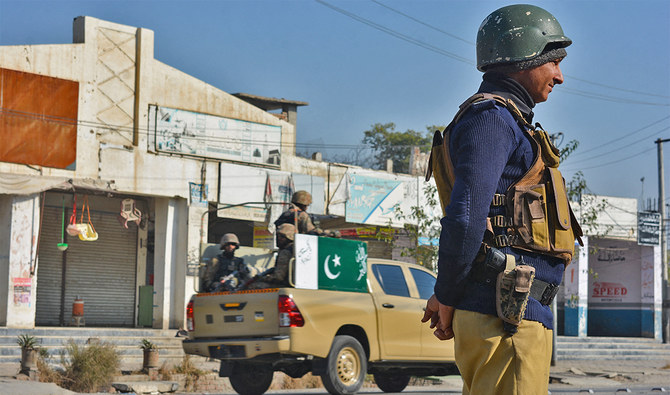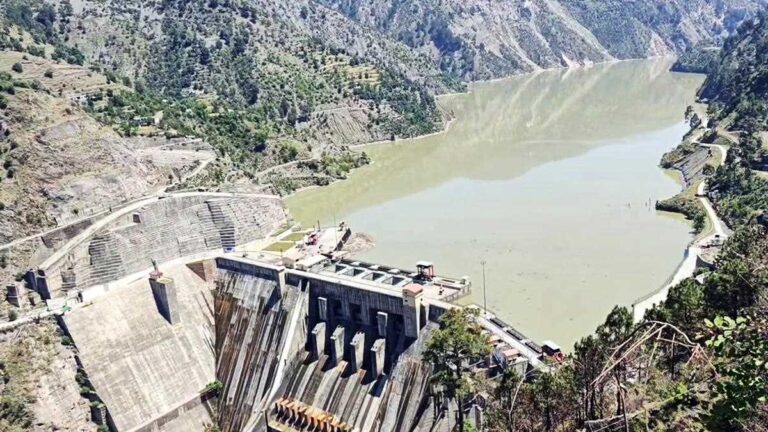
Source: Arab News
Asif Amin
The recent upsurge in terrorism and increased presence of militants in Swat have again gripped Pakistan with dread and fear of a bloody wave of militancy. Recent terrorist attacks prove that militancy has returned to Pakistan’s two provinces in Khyber Pakhtunkhwa and Balochistan, with the capital getting targeted. Therefore, it could be argued that Pakistani authorities have been unable to prevent the resurgence of inimical terror outfits.
For over a decade, terrorist groups, not least the Tehrik-e-Taliban Pakistan (TTP), have found sanctuaries inside Afghanistan and areas along the Pak-Afghan border. The TTP, it must be noted, has been responsible for some of the worst terrorist attacks on Pakistani civilians and security personnel. The banned organization was responsible for the attack on Army Public School in Peshawar that killed 145 innocent children and teachers in 2014; it also attacked the Pakistan Army’s General Headquarters (GHQ) in 2009. Despite substantial gains from Operations Zarb-e-Azb and Rad-ul-Fassad against it, TTP continues to pose a major, pervasive threat to Pakistan. Although TTP lost its territory in Pakistan, the organization and its splinter groups continue to mount deadly attacks on Pakistani law enforcement agencies (LEAs) and other targets.
After the U.S. withdrawal from Afghanistan, the TTP has intensified its cross-border attacks inside Pakistan. According to the South Asian Terrorist Portal (SATP), 361 terror-related incidents took place in Pakistan in 2022. The recent announcement by the TTP to end the ceasefire and declare war against Pakistan has raised concerns about the country’s ability to eliminate the challenges presented by the said organization. A recent briefing by the National Counter Terrorism Authority (NACTA) to the Senate pointed out that peace talks provided breathing space for TTP to gain a “significant footprint and magnitude of activities.” Pakistan’s Minister of State for Foreign Affairs, Hina Rabbani Khar, visited Afghanistan to discuss the current security situation with the Afghan Taliban, who have been facilitating peace talks with TTP. However, the talks seemed to be unfruitful. It might be argued that the Afghan Taliban have not been able to act against the TTP in line with Pakistan’s expectations.
Understanding TTP’s Belligerence
The recent brazen terrorist campaign of TTP reflects that the policies of the Pakistani government to eradicate militancy in the region along the Afghan border have fallen short. Several internal and external factors have led to the resurgence of TTP. It is believed that the Afghan Taliban’s takeover of Afghanistan inspired the TTP to intensify its kinetic activities against Pakistan. After the Afghan Taliban’s assumption of power in Afghanistan, the TTP has been emboldened because the former has provided a moral reinvigoration to the militant outfit. Also, Pakistan’s overall approach towards countering terrorism has strengthened the TTP.
There are other factors that account for TTP’s recent successes. First, the hastily-executed U.S. withdrawal from Afghanistan created a power vacuum that allowed terrorist groups such as TTP to regroup and relaunch their operations. We have witnessed that since the end of the ceasefire, the TTP has taken responsibility for several deadly attacks on LEAs, including the one in Bannu and a suicide bomb blast in Islamabad. Second, Pakistan’s peace negotiations resulted in a disastrous failure, with terrorists returning to Swat. The negotiations with the bloodthirsty outfit were against the locals’ will that resulted in massive protests in Swat, Bajaur, Dir, and Waziristan, demanding that the Pakistan government not engage in dialogue with a murderous militant group.
Third, after militants got defeated in Swat, most of them moved to Afghanistan, where they found safe havens. A United Nations Security Council report indicated that over 6,500 TTP fighters are present in Afghanistan near the Pakistan border. Since the Taliban took power in Afghanistan, Pakistani authorities have been pressing them to take action against TTP. However, it could be argued that the Afghan Taliban are taking an independent course, and that Pakistan has little leverage over them.
Handling TTP has become a point of disagreement between Pakistan and the current Afghan government. Pakistan has been pressing the Afghan Taliban to take stern actions against the banned organization given that the Doha deal called upon them to commit to disallowing Afghan territory to be used for terrorism. Recent border clashes between both sides have also made the situation worse to the point where it might be difficult for Pakistan to convince the Afghan Taliban to take action against the TTP. Recent terrorist attacks and the Afghan Taliban’s unwillingness to take action against the group have left Pakistan frustrated. In a recent interview, Pakistan’s Foreign Minister Bilawal Bhutto Zardari declared TTP Pakistan’s “absolute red line”, adding that the country would go to any length to safeguard its security.
Implications for Pakistan and the United States
The Recent belligerence of TTP has implications for both Pakistan and the U.S. It is believed that a resurgent TTP paves the way for other terrorist groups, such as Islamic State Khorasan Province (ISKP ), to regroup and launch attacks against Pakistan. Since its withdrawal, the U.S. has keenly observed the developing security situation. The U.S. has reiterated, that “it will take actions in a way that protects its interests”. A recent visit of the CENTCOM Chief indicates that the U.S. is deeply concerned about the unfolding security situation in the region. Pakistan’s Foreign Minister has said that the US is willing to assist Pakistan in border security. The current terrorist attacks in Pakistan from Afghanistan have made Pak-U.S. counterterrorism cooperation likelier.
Finally, political and economic instability in Pakistan has been a bane. Pakistan is finding it difficult to deal with the deteriorating economic situation that has tattered the socio-economic fabric of the society. The incumbent political setup of coalition parties has not been able to address the unfolding security situation. Furthermore, after the ouster of the Pakistan Tehrik-e-Insaf (PTI) government, a vast majority of the country has shown its distrust in the current dispensation, both through the ballot and on the roads. All this means that dealing with a renewed threat of terrorism would be mighty difficult.
To conclude, one might argue that the mounting threat of terrorism could roll back all the success that Pakistan has achieved. In the past, the policies made to address the security of Pakistan were military-dominated and rather one-dimensional. The current situation requires a holistic approach that includes all segments of society. Historically Pakistan’s counter-terrorism strategy was outsourced to the military, and therefore other non-kinetic planks were ignored. So, it is imperative that a comprehensive strategy be adopted going forward.
Dr. Asif Amin is Assistant Professor, School of Integrated Social Sciences, University of Lahore.




